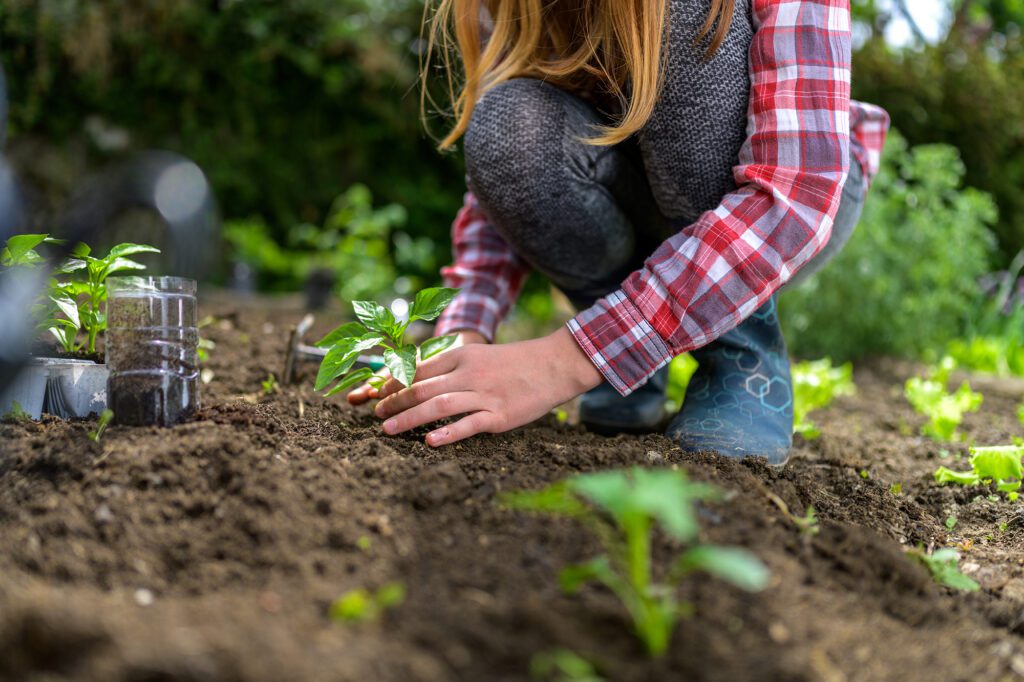Daniel Jenkins Academy Teacher Incorporates Hands-On Lessons in Agriculture, Sustainability and More
by TERESA SCHIFFER
Those in the agricultural industries understand very well just how important agriculture and the environment are to any society, as well as the value of teaching the younger generations their significance. Our teachers and educators hold the future in their hands, molding young minds into productive, caring citizens with well-formed critical thinking and problem-solving skills. Tara Boucher is one such Polk County instructor making a positive impact at Daniel Jenkins Academy in Haines City.
Boucher, as she is known to her students, has been teaching for 21 years and has covered a wide range of subjects over the course of her career, including math, social studies, creative writing, Spanish, and lots of science. For the past three years, she has been at Daniel Jenkins Academy empowering the middle school students to work together to ask questions and seek answers through research and experimentation in her environmental science class.
The passion Boucher feels for earth and space science keeps her motivated to explore the realms of ecology, sustainability, agriculture, solar energy and more with her students. That enthusiasm generates a truly constructive reaction in her students, who overwhelmingly enjoy participating in her class. Through hands-on projects with real-world applications, Boucher engages students to connect with their world in a more meaningful way.
“When they get to see something grow, or see that they tried something different and it’s working, they really get excited about why it’s working. Even if their partner in the same garden bed did the same thing but theirs isn’t working, you can see the excitement,” Boucher says of the students in her class.
Her students have been growing vegetables in raised beds on the school’s property for the past few years, using scraps from their own lunches as compost. They’ve raised broccoli, onions, lettuce, carrots and lots of radishes. When all the schools had to shut down in 2020 due to the pandemic, the vegetable gardens were left unattended for several months. Upon returning to campus in September, Boucher and her pupils found the beds greatly overgrown and set to cleaning them up. During the process, the students were thrilled to find that some of what they thought were “weeds” were actually vegetables that had done exceedingly well.
Boucher relates the children’s reaction when they decided to try their hands at growing one of the common cultivars of the popular Brassica oleracea plant: “They were amazed what a broccoli plant looks like because they’re so used to just seeing broccoli in the supermarket.” When the plants unexpectedly bolted, producing flowering stems instead of the familiar green heads, the students wanted to know why that happened, which led to even more questions and answers through scientific inquiry and analysis.
A recent grant from Duke Energy has enabled Boucher to begin a vertical gardening project with the kids. “Their first activity is they have to engineer a window garden that has to be three layers, there has to be a plant on each layer, and they have to have some sort of watering system,” Boucher describes. The students immediately set to work on their designs, ultimately transforming ordinary water bottles into functional watering systems.
The environmental science class gets rave reviews from the students. “I love being able to try new things and projects that I wouldn’t be able to do outside of school,” says Samantha Chewning. Boucher herself is popular with the kids, too. Zyquoia Streeter sums it up well, saying, “Ms. Boucher is very outgoing and brings great energy to the class.” Giving students the chance to be creative keeps them excited about learning. “I’m really glad I was able to take this class,” Victoria Fragale tells us.
Boucher is working hard to impart some valuable guiding principles to the students.
“Number one is respect for the environment, to really understand what our human activities are doing to the environment around us. That’s the number one, overarching theme that we have, but if you narrow it down into my class, it’s sustainability. We know our planet is becoming more and more populated, how can we sustain food production? That is really what the seventh grade zeroes in on – food production and how to fix problems such as not a lot of land space, or poor soil. So my top two are respect for the environment and sustainability.”

